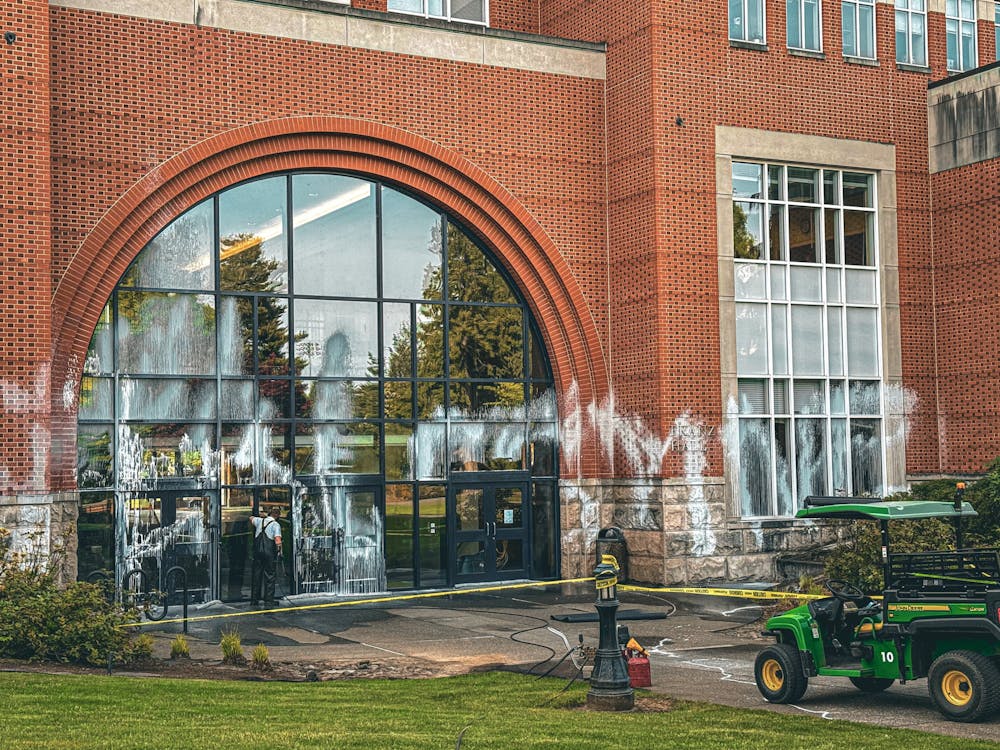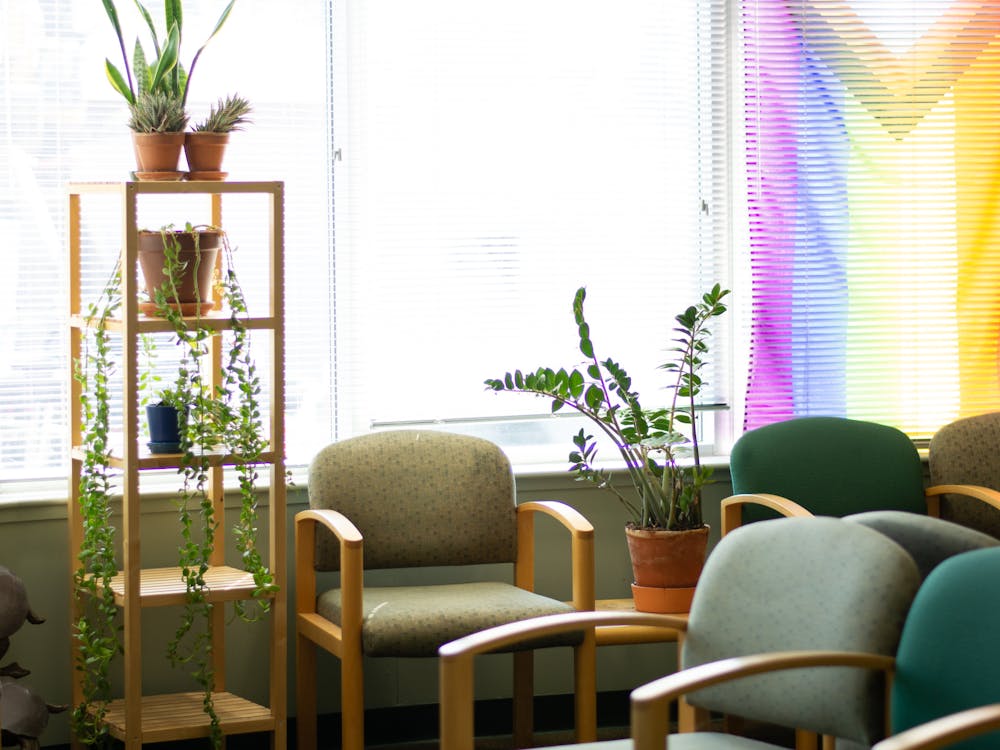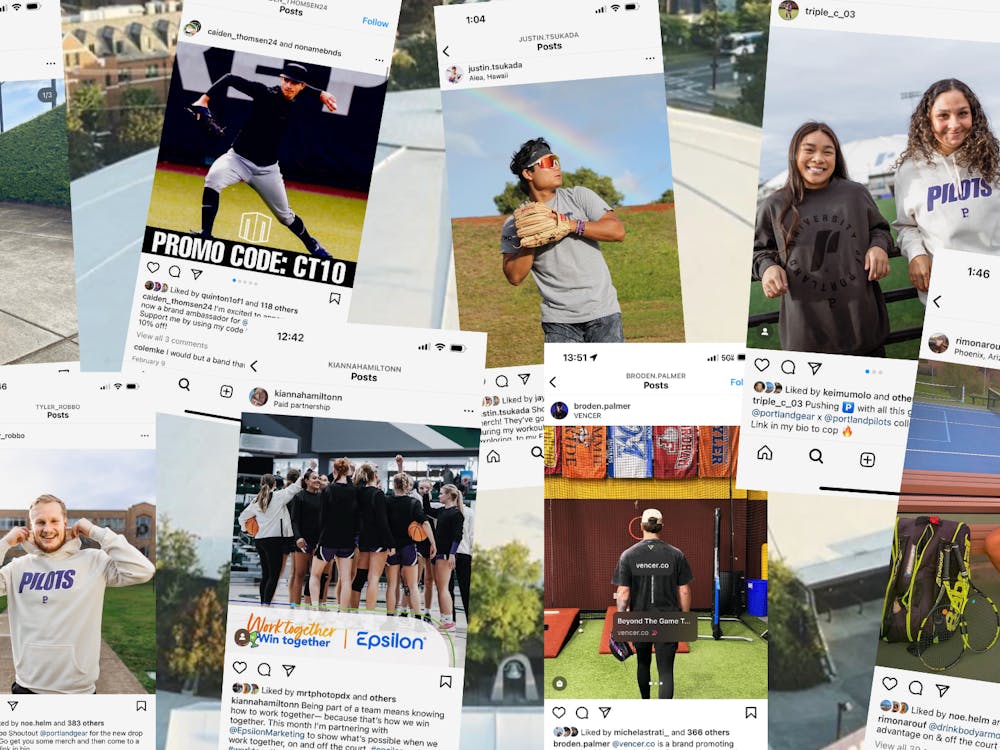Dr. Carma Corcoran grew up in a family of 18 siblings in Montana. Of her 16 brothers, all who lived to adulthood have served time in various correctional institutions. Eighty percent of her 50 nieces and nephews have been in and out of the criminal justice system.
It was her personal connection to the plight of Native American incarceration that led Corcoran to go back to school at age 40 to earn a bachelor’s degree in communications and eventually a Ph.D. in philosophy that sought to better the lives of those incarcerated in her community.
Corcoran, the director of the Indian Law Program at Lewis and Clark Law School, spoke to a crowd of about 30 people in St. Mary’s on Thursday night before spring break about the struggles of Native Americans, specifically women, in the criminal justice system. The incarceration rate in Corcoran’s family is consistent with the incarceration rate for Native Americans, which is thirty eight percent higher than the national rate. Native Americans are also arrested at twice the rate of the greater US population, Corcoran explained.
The presentation, sponsored by UP’s Native American Association, rounded out Diversity Dialogues. Her passion for highlighting the experiences of Native Americans stems in part from her dissertation, in which she spent a year working with a group of 12 incarcerated Native American women at Coffee Creek Correctional Facility.
“Institutions like (Coffee Creek) are not made for you to see because it makes the general public feel safer,” Corcoran said. “Part of the work I do is making the invisible, visible.”
As part of her doctoral work, she set out to lead a weekly workshop with a group of women at the facility deemed “incorrigible” by the state. Using what she called a paradigm built on trust, respect and relationship, she aimed to help them heal from what she described as generational trauma.
“For over 500 years, Native Americans have suffered physical, emotional, social and spiritual genocide from European and American colonist policies and procedures,” Corcoran said.
This painful history seeps into their daily lives, leaving many Native American communities to confront a long list of struggles, including depression, high mortality rates, child abuse, domestic violence and their overrepresentation in the criminal justice system, Corcoran explained.
Throughout her talk, Corcoran reiterated these women’s need for healing from the trauma they had suffered both outside of and within the prison system. But the healing they needed had to come from within their own communities, Corcoran explained. In her work there, she advocated for traditional healing ceremonies to combat the consequences of colonization, one of which is mass incarceration of Native Americans, she explained.
“As I work with these women, it’s clear that there’s a need for healing ceremonies,” Corcoran said. “These women in prison have had such a disruption in the way that they were traditionally brought up. They really struggle with, ‘Who are they and where do they come from?’ and that comes from the historical trauma experience.”
Corcoran worked with Coffee Creek to ensure that the Native American women incarcerated there could have access to certain traditional plants necessary for ceremonies. She wanted to educate the directors of the facility about sacred foods, plants and animals in various tribal cultures, and she said it took three years for the facility to allow certain sacred plants to be used.

She referenced the First Nations academic Lee Maracle to emphasize the need to connect the incarcerated native women at Coffee Creek and all Native Americans with traditional forms of healing.
“She (Maracle) describes culture as a mirror of people’s way of life,” Corcoran said. “The search for truth is answered in the ceremonies of our grandmothers. She reminds us that spirituality is reconnecting with the self and your ancestry.”
People who attended expressed their shock at learning of the mass incarceration within Native American communities but also their admiration for Corcoran’s personal and traditional healing-centered approach.
“It was very inspirational because she was describing how she was, one, affected by it, and two, how she kind of used that in order to better help Native Americans,” senior history major Kale Kanaeholo said. “(She offered) ways of going about helping them and kind of just listening to them and hearing them out instead of trying to show them solutions.”
Senior French major Elizabeth Bailey was glad that a speaker brought awareness to an overlooked issue and offered a path forward.
“I was actually very unaware that it was this much of an issue because usually when you hear of incarceration, it’s usually of black males,” Bailey said. “I also liked how it was pretty hopeful too, about using ceremonial healing, instead of just being all doom and gloom.”









